This Yoruba Epa mask features a superstructure of what appears to be a Cheetah or some other wild cat catching it’s prey. The mask measures 50 inches tall and weighs 28.5 pounds. This piece would be a definite conversation starter in any home. There is some cracking and wear and tear throughout. Please inspect photos.
Stunning Yoruba Epa Mask 50″ – Nigeria – African Art
Original price was: $850.00.$425.00Current price is: $425.00.
Sold
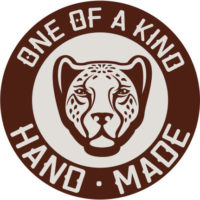
| Type of Object | Mask |
|---|---|
| Ethnicity | Yoruba |
| Country of Origin | Nigeria |
| Animal | |
| Material | Wood, Pigment |
| Approximate Age | Unknown |
| Height (Inches) | 50" |
| Width (Inches) | 13.5" |
| Depth (Inches) | 14" |
| Weight | 28.5lbs |
| Overall Condition | Some cracking, scuffing and general wear and tear throughout. |
You must be logged in to post a review.
Tribe Information
About the Yoruba People
The Yoruba are the largest cultural group on the African continent, with nearly 40 million people. The word ‘Yoruba’ describes both the language and a tribe living across Nigeria and the Popular Republic of Benin, in an area of forest and savannah.
Geography
The Yoruba people’s primary living space is South-West Nigeria with substantial Yoruba communities in Benin, Togo and Sierra Leone but they are not bound by state or country borders. This area is often referred to as “Yorubaland”. Most of the terrain is either forest, woodland savannah, rich farmland or coastal swamps and lagoons.
History
The origin of the Yoruba people in Nigeria is heavily debated. Some believe they came from the east in Mecca, some say from the north in Egypt. Evidence shows that ethnically, Yoruba’s have been in the area known as Yorubaland since the 7th century BC. Scholars believe the area was probably inhabited earlier by peoples of the Nok culture. Yorubaland covers the modern-day countries of Nigeria, Togo and Benin. The term Yoruba to describe ethnicity, did not come about until the 16th century and wasn’t widely used until the 19th century. Before then, the Yoruba people were known by many names depending on who was acknowledging them. For instance, the Europeans referred to them as Akú, whereas in Cuba, they were referred to as O luku mi.
Read more about the Yoruba here.
Additional Information
About the Epa Mask
Epa masks are among the largest masks dance by the Yoruba people and are made from a single piece of wood. The final products come in a variety of sizes but can weigh in excess of 100 pounds and measure 6 feet high or more. The men who dance these masks must be in good physical condition and practice balance regularly as it is difficult to maneuver about with such a large, heavy object.
The Epa mask festival lasts for several days where sacred ceremonies take place strengthening fertility and honoring ancestors. There are many variations of Epa masks. For instance, a mask with a superstructure depicting a woman with two children is meant to represent ‘Mother of Twins’, whereas one with a man on horseback is meant to represent a rider warrior (Jagun Jagun). The bottom face of the mask always depicts Orangun, the first deified Yoruba King.
Epa masks are also worn amidst rites of passage ceremonies and during funerals. When these masks are not being worn for one reason or another, they are kept in shrines and are honored with libations and prayers.

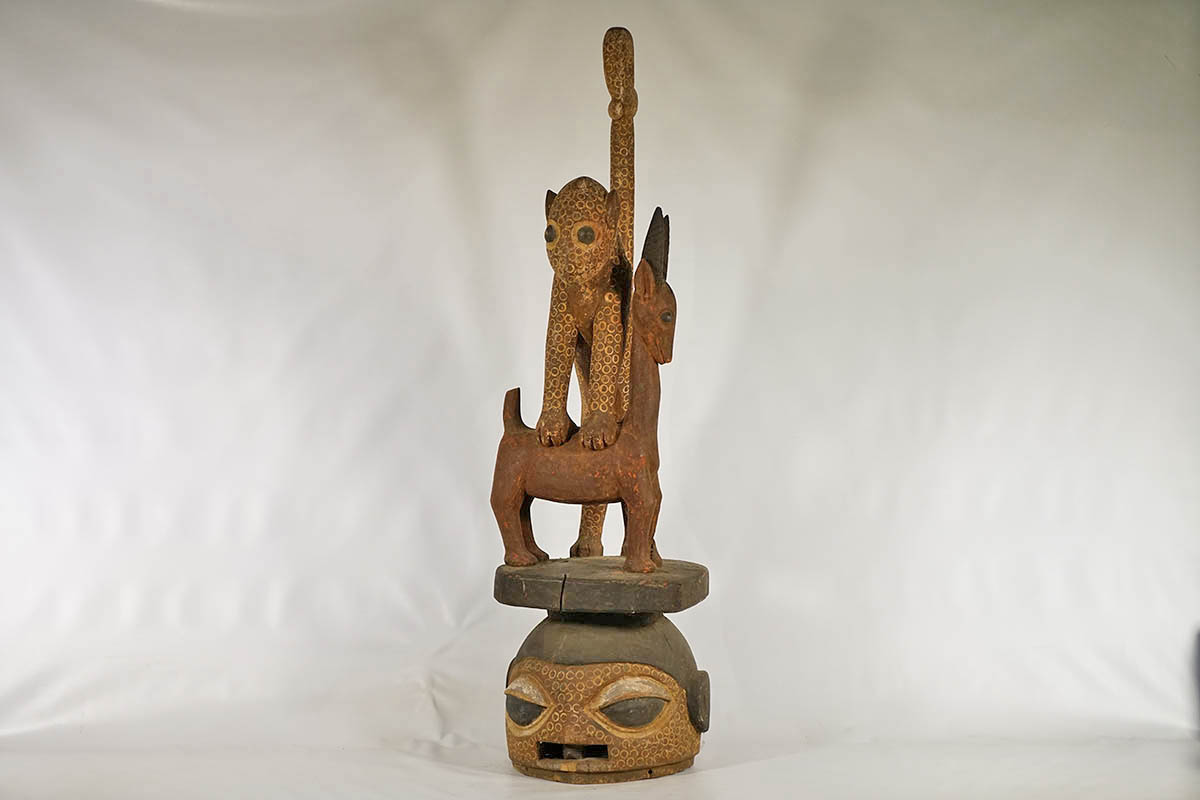
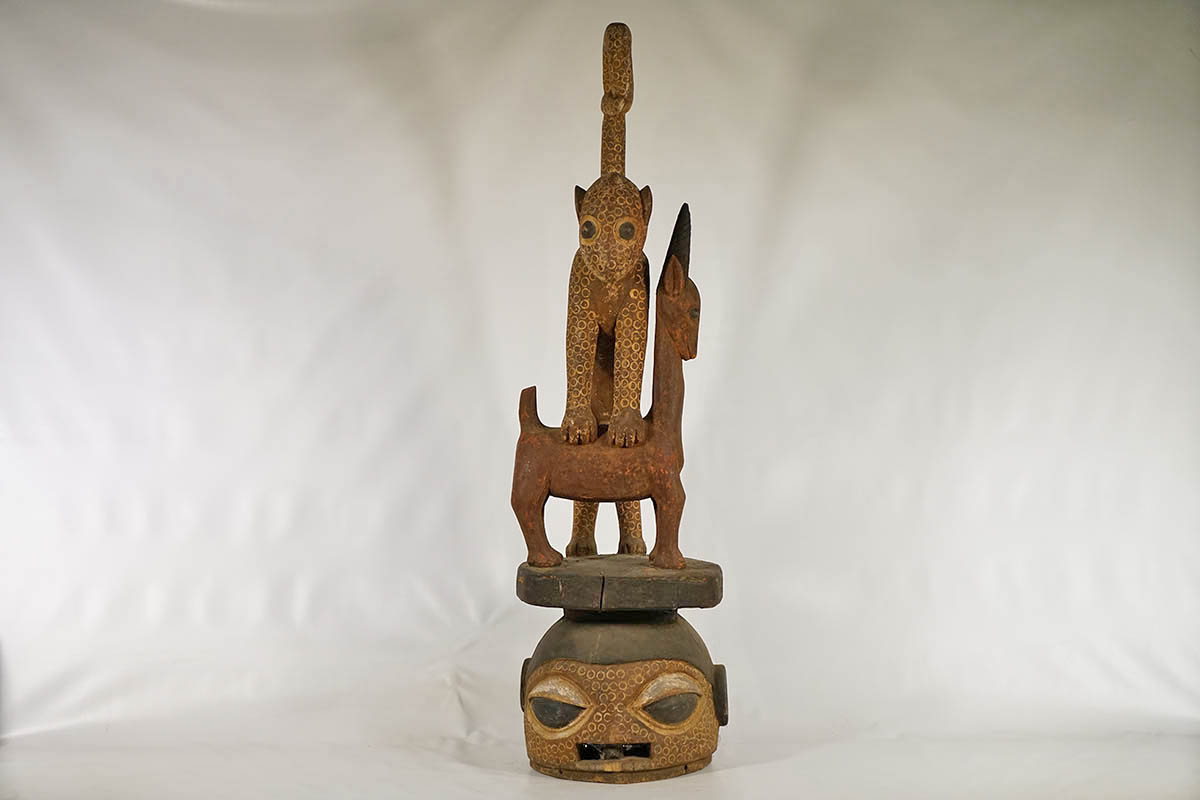
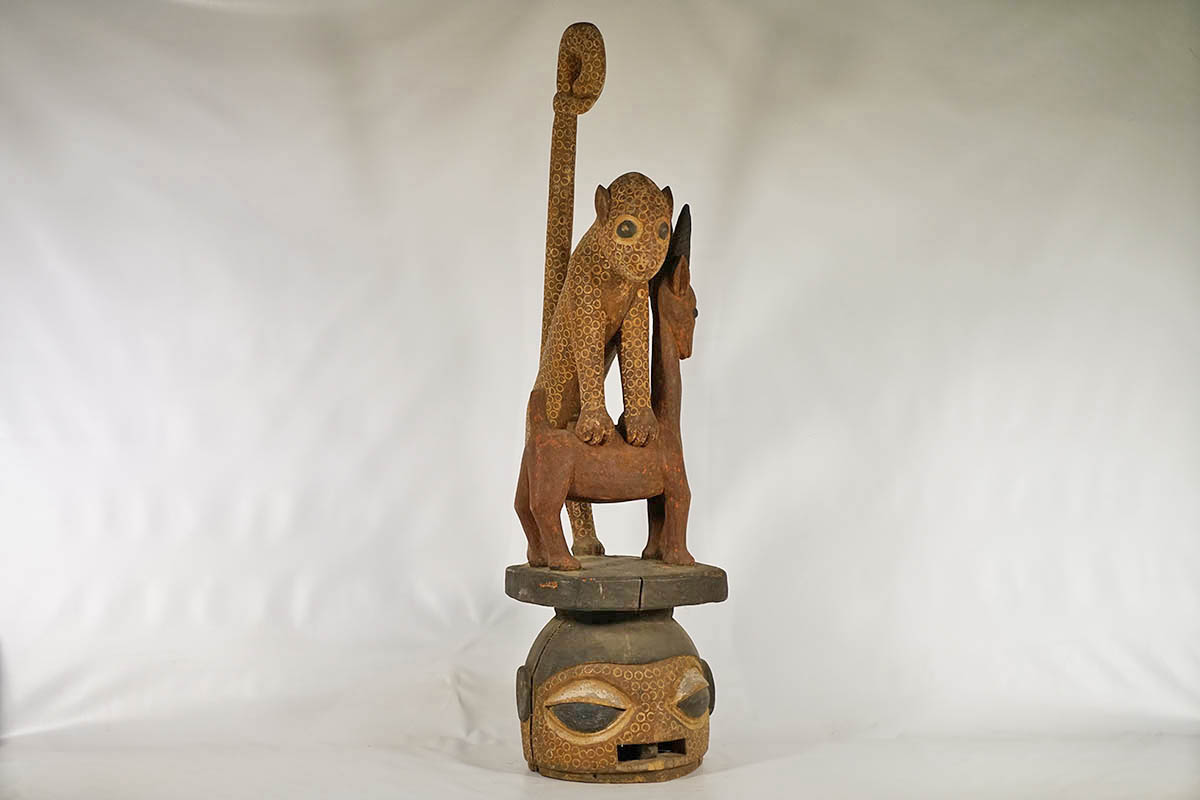

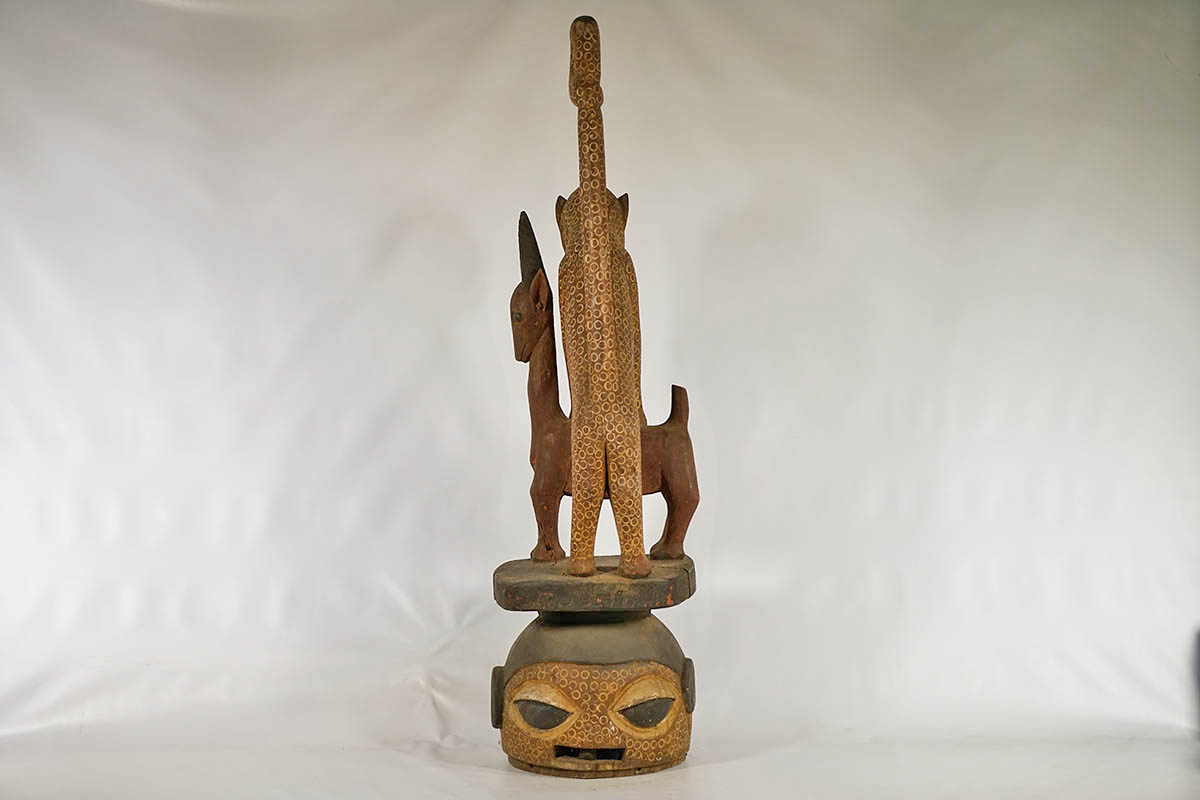
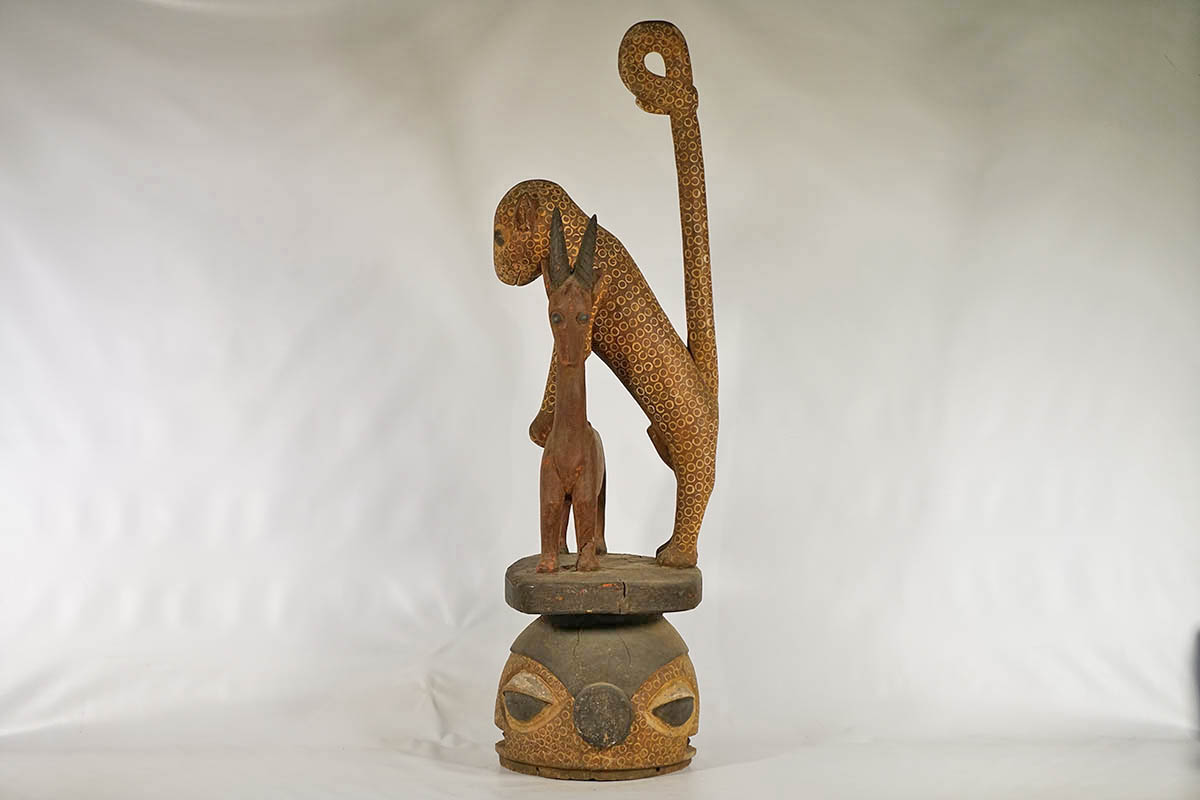
Reviews
There are no reviews yet.